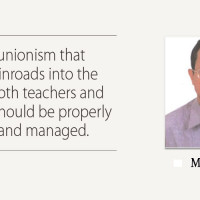- Friday, 18 October 2024
Shaping Nepal’s Health Diplomacy
In a changing global context, the central narratives and relevance of health diplomacy have substantially changed, but its importance is ever increasing in the face of geo-political, ideological or national interests. This is largely because health constitutes a range of dimensions including social, cultural, economic, geo-political, security, human rights and social justice. Moreover, in the recent years, health diplomacy is greatly influenced and shaped by national and international health polices and politics of aid. Yet, these are triggered by trade and economic development, socio-political dynamics, and health security issues such as COVID-19 pandemic, natural disasters, spread of newly emerging communicable diseases and threats of bioterrorism across countries.
In general, as narrated by World Health Organisation (WHO), health diplomacy broadly refers to the negotiation processes that shape and manage the policy environment for health. Essentially, in such processes, there is a clear focus on negotiations during the high-level annual health meeting, regional health conference, and global health forum having a broader agenda that can lead to international agreements, treaties and conventions. The unique multi-lateral agreement on health security, popularly known as International Health Regulations (IHR 2005), provides the international legal framework for the prevention and response to the international spread of diseases.
Political space
While the role of diplomacy in health is increasingly considered vital, it crosses the national scope and boundaries, and hence creates political space for negotiations on public policy issues surrounding global environment for health. Bringing together a range of relevant stakeholders, health diplomacy primarily seeks to improve relationships with external development partners who are closely working with low-income countries to achieve overarching goals of reducing poverty, enhancing health security and increasing equity in health.
Despite significant achievements in health sector, Nepal is still facing a number of public health challenges that requires effective engagement of a wide range of actors for political negotiations at regional, bilateral and national levels. Our foreign policies must consider the crucial needs of health security, access to medicine and technologies, equity in health and social justice by demonstrating common interests, trust, readiness, and political leadership for mutual benefits within and across countries.
In Nepal, health diplomacy is crucial for effectively addressing the growing challenges of public health in the recent years. Equally important is to build the national capacity for health emergency response such as COVID-19 and other epidemics during and after the disasters such as earthquake, landslides, and floods. The political negotiations and commitments for strengthening regional initiatives in health are critical to ensure safe and healthy environments.
Additionally, South Asia Region has experienced many development challenges that have wider socio-political, cultural and economic implications impacting on human health at large. Undoubtedly, effective political negotiations are crucial to promote regional cooperation and collaborations for evidence-informed solutions. For Nepal, it is increasingly realised that there is a pressing need for stronger regional presence and leadership during global discussions in the area of inclusive health policies and transformative strategic actions at all levels.
On the other side, there is a need for broader engagement of the countries in the region to strengthen the interface of health and foreign policy, both within and across countries. In this context, recent participation of Health and Population Minister Pradip Paudel in the 5th Ministerial Meeting of the Asia Pacific Regional Forum on Health and Environment (APRFHE) is a timely call for international cooperation and solidarity to exchange technical assistance in the areas of global issues such as climate change, air pollution and environmental sustainability. Building climate-resilient health system is an emerging priority for actions in low-income countries.
In many other similar regional or international platforms, Nepal must prepare well in advance in prioritising health agenda for effective dialogues and negotiations by demonstrating strong political leadership and commitment for achieving health related sustainable development goals (SDGs). Moreover, such opportunities must be capitalised not only for just sharing good practices within and across countries, but also broadening the political space to pool technical and other resources.
Periodic review of relevant international treaties, agreements and conventions is necessary to strengthen health diplomacy at large. This will help ensure that health is one of the significant priorities for actions in all political negotiations and conventions. Moreover, health diplomacy promotes trust and creates an enabling environment for engagement, strengthens harmony with regional cultures and socio-political realities. While health security is more than national concern, there is a clear link between national and foreign policy that shapes the landscape and dynamics of federal health governance at all levels. Building and managing donor and stakeholder relations in crucial in maintaining health diplomacy.
Inclusive health governance
Therefore, Nepal needs to strengthen health diplomacy platforms and convene occasional seminars to raise public awareness about the importance of health diplomacy in addressing social inequalities. Effective engagement of a wide range of stakeholders such as parliamentarians, diplomats, representatives of UN agencies, inter-governmental organisations, media and civil society is vital in creating alliances in support of inclusive health governance for better outcomes.
In this context, WHO and other development partners can play an important role in providing technical assistance to enhance the capacity of low-income countries by convening seminars and dialogues for parliamentarians, diplomats and senior health officials so that they are more familiar with international agreements that affect health. In the face of a broad range of social, cultural, economic, and political interests, Nepal must demonstrate a strong political leadership in harnessing the power of international relations and diplomacy for universal access to quality health care at large.
(Bhandari is a health policy analyst.)
















